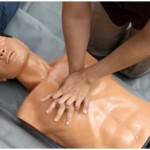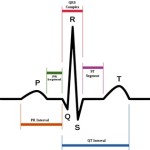What is pleurisy? Pleura is a double layered membrane that surrounds both lungs and run along the rib cage. Between these two layers there is a space called pleural space which is usually filled with a small amount of liquid. These layers act like one piece and their function is to allow the lungs to expand or contract in the process of breathing while not allowing any resistance from the lining of the chest wall. When there is an inflammation or irritation of this moist double layered membrane pleurisy or also called pleuritis may occur. Pleuritis is an extremely difficult condition that makes breathing difficult and sometimes it can be accompanied with another
condition called pleural effusion. The mix of both conditions at the same time can result in excess of fluid that fills the area between the layers of the membrane.
What is Pleurisy? Causes & Symptoms
The non-stop difficult and painful breathing is among the first symptoms of pleurisy. Most patients with such symptoms find their relaxation point of unpainful breathing when they hold their breath for a second. The causes of pleurisy are:

1. Bacterial infection such as pneumonia
2. Viral infection such as influenza (flu)
3. Infection caused by fungi
4. Rheumatoid arthritis or some other rheumatoid diseases
5. Medications
6. Lung cancer localized near the pleural area
There are some signs of pleurisy that can signalize and help us to make an early detection of this disease. The symptoms of pleurisy are:
- Deep pain in our chest that enables our breathing process
- We cannot stop coughing and sneezing
- We are trying to hold our breath or minimize our breathing because of the pain and that is why we are experiencing shortness of breath.
- Fever- just in some cases
What is pleurisy if it is combined with pleural effusion? It makes your breathing extremely difficult. This condition may occur in some cases if there is a fluid buildup between the two layers of tissue in the pleural space. A reasonable amount of fluid can lessen the pleurisy pain because the two layers do not have any contact. Patients who suffer from pleurisy may also experience pain in their back or shoulder. A large amount of fluid accumulated in the pleural space can make a big pressure and compress your lung to a partial or complete collapse. In such conditions, the patient can experience difficulties with his breathing and frequent caught. This extra fluid that is accumulated in the pleural space may become infected. Such condition is called empyema and it is usually accompanied by a fever. If you experience any symptoms of deep intense chest pain while breathing, call your doctor immediately. These symptoms may be associated with a lung, heart or pleura problem for which you may need medical care right away.
Diagnosis & Treatment Of Pleurisy
It is important to tell your doctor all about your medical history. Your doctor will examine your chest with a stethoscope and in order to determine whether you have pleurisity or not he will recommend for you to:
- Run a blood test: a simple blood test will tell if you are the carrier if an infection.
- Get an X-ray: the chest X-ray has a crucial part in showing whether you lungs are working fine or there is fluid or air between the lungs.
- CT scan: the computerized tomography scan is another way to examine your chest and see if there is a blood clot into your lung.
- Ultrasound: the ultrasound method is used to determine if you have a pleural effusion.
Once we determine the cause of pleurisy, a proper treatment may be provided. Your doctor may prescribe antibiotics to discontinue the infection. If you are experiencing strong chest pain your doctor may also prescribe anti-inflammatory drugs or some other pain medicines to lessen the chest pain and cure the inflammation. Most patients who are diagnosed with pleurisy suffer from a frequent and painful cough; in such cases codeine-based syrup may be prescribed to prevent the painful cough. The pleural effusion treatment is antithetic because the pleural fluid is already infected or in some cases excessive and the doctor will have to perform drainage. This is done by using a tube that is inserted in to the patient’s chest. Such a procedure can be performed only in a hospital environment.






















